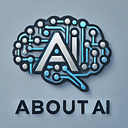AI Competitions as a Benchmark for Generative AI Evaluation
Evaluating generative AI (GenAI) models presents unique challenges. Traditional machine learning benchmarks often fall short when applied to GenAI, where outputs are diverse, context-dependent, and lack clear ground truths. A recent position paper argues that AI competitions offer a more rigorous framework for assessing these models.
In “Position: AI Competitions Provide the Gold Standard for Empirical Rigor in GenAI Evaluation,” Sculley et al. (2025) contend that conventional evaluation methods are insufficient for GenAI systems. They highlight issues such as unbounded input/output spaces, feedback loops, and, critically, data leakage and contamination. The authors propose that AI competitions, with their structured environments and anti-cheating measures, provide a more robust alternative for evaluating GenAI models.
The paper examines how AI competitions implement strategies to mitigate evaluation pitfalls. For instance, competitions often use unreleased holdout sets, dynamic benchmarks, and community-driven evaluations to prevent data leakage and ensure novelty. These methods help maintain the integrity of the evaluation process, offering a more accurate assessment of a model’s capabilities.
One compelling example the authors provide is the use of post-deadline data collection in competitions like the WSDM Cup and the Konwinski Prize. In these settings, test data is gathered after the competition deadline, ensuring that models are evaluated on truly unseen data, thereby minimizing the risk of data leakage and providing a more accurate measure of a model’s generalization capabilities.
The authors also acknowledge limitations in this approach. AI competitions may prioritize robustness over reproducibility, potentially conflicting with scientific norms. Additionally, the competitive nature of these events might encourage overfitting to specific tasks, and the focus on leaderboard rankings could overshadow broader performance metrics. Finally, the goal of the competitions might not cover all use cases in real world applications to develop appropriate evaluations.
In practice, I still think that evaluation of genAI applications should start by looking at raw data first and go deeper into error analysis. This exercise can guide eval development. However, to me, this position paper, although at early stages, is interesting because it challenges the status quo of GenAI evaluation. By advocating for AI competitions as a standard, it prompts a reevaluation of how we assess model performance in complex, real-world scenarios. This perspective encourages the development of more dynamic and secure evaluation frameworks.
Do you believe AI competitions should become the primary method for evaluating generative AI models, or should they complement existing benchmarks?

